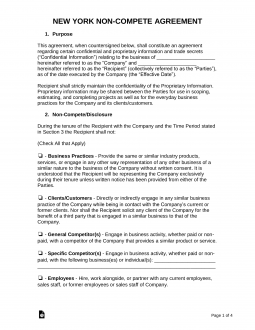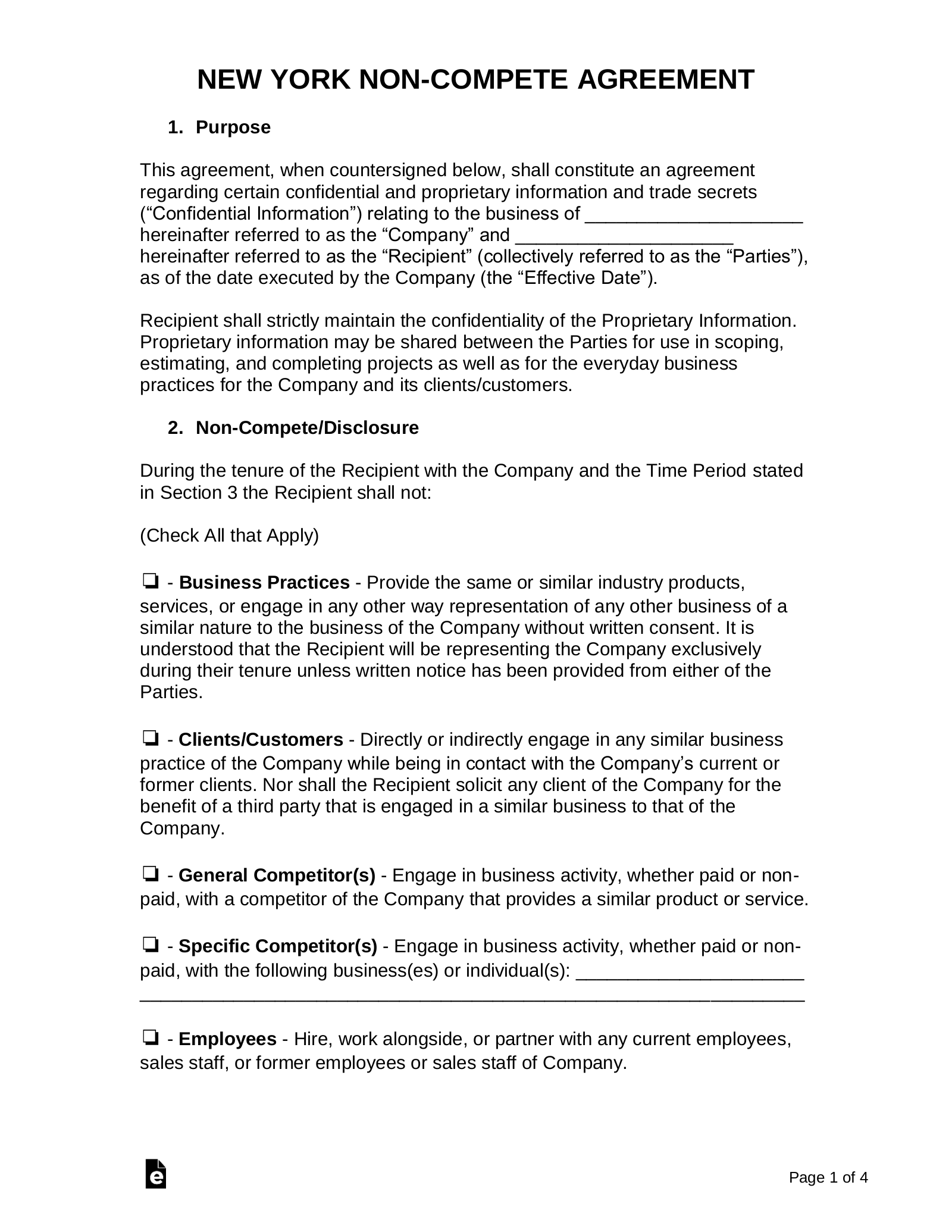Updated March 01, 2024
A New York non-compete agreement allows an employer to protect its interests by limiting employees from working in the same business. The agreement must be written no more than it is necessary to protect such interests and not impose hardship on the employee.
A non-compete must be written with a specific time period, geographical area, and scope outlining the employee’s restrictions.
Laws
Legally Enforceable?
Yes, a non-compete is legal in New York if it follows a three-pronged test.[1]
Three-Pronged Test
- Protectable interest. Is no greater than is required for the protection of the legitimate protectable interest of the employer;
- Undue hardship. Does not impose an undue hardship on the employee; and
- Public policy. Is not injurious to the public.
Protectable Interests
New York limits an employer on the justification for a protectable interest to:[2]
- Protection of trade secrets;
- Protection of confidential customer information;
- Protection of an employer’s client base; and
- Protection against irreparable harm where an employee’s services are unique or extraordinary.
Adequate Consideration
In addition, a non-compete must include “adequate consideration,” which may include:[3][4]
- Cash payment;
- Full-time or continued employment (if employment is for a “substantial” amount of time after the agreement was signed);
- Promotion;
- Added benefits;
- Ownership; or
- Any other monetary consideration.
Attorneys (prohibited)
An attorney is not allowed to enter into a non-compete or any agreement that prohibits them from practicing law in the State.[5]
Maximum Term
- 2 years has been deemed to be a reasonable time period by the Supreme Court for employment purposes.[3]
- 5 years have been deemed to be a reasonable time period by District Court for selling a business.[6]
Although, the duration and geographical area are both considered when deciding if a non-compete is reasonable.
Blue Penciling
New York courts have amended broad and unreasonable non-compete covenants to make them reasonable only if the “unenforceable portion is not an essential part of the agreed exchange.”[2]
Approved Blue-Penciling
The court amended to make the non-compete more narrow for the scope of work limitations related to dentistry.[7]
Unapproved Blue Penciling
The agreement did not include a geographical area, therefore the non-compete was deemed unenforceable.[8]
“Non-Compete Agreement” Definition
A non-competition agreement (“non-compete”) prohibits an employee from working for a competitor or opening a competing business, typically for a certain period of time after an employee leaves a job. A non-compete may be one section of an employment contract or a standalone contract that an employee signs before or after employment begins.[9]
Sources
- BDO Seidman v. Hirshberg (1999)
- Silipos, Inc. Bickel (2006)
- Zellner v. Conrad (1992)
- Maltby v. Harlow Meyer Savage (1995)
- Rule 5.6 (Restrictions on Right to Practice)
- Intertek Testing Services, N.A., Inc. v. Pennisi (2020)
- Karpinski v. Ingrasci (1971)
- AM Medica Communications Group v. Kilgallen (2003)
- NY Attorney General (Non-Compete Agreements in New York State)


